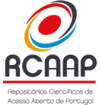Chatting in Portuguese: strategies for spoken interaction between Erasmus and Portuguese students during the COVID-19 Pandemic
DOI:
https://doi.org/10.21814/h2d.2865Keywords:
erasmus, portuguese as foreign language, intercultural communicative competenceAbstract
During the 2nd semester of the academic year 2019-2020, under COVID-19, Erasmus students who attended the various colleges of the Polytechnic Institute of Lisbon found themselves deprived of the possibility that an international academic experience promotes, namely social contact and immersion in the living language in the country in which they are studying. The social isolation to which we were obliged thus prevented the natural acquisition of a language in the context of immersion. For that reason, it would be of utmost importance to provide these students with the opportunity to develop their communicative competence in Portuguese. Bearing in mind the goals presented i) to minimize the social isolation of higher education students; ii) to promote the linguistic enrichment in Portuguese language, in an informal context, of Erasmus students and iii) to contribute to the intercultural awareness of students, a strategy was carried out that brought dialogue between Erasmus and Portuguese students, in four oriented informal conversations, which culminated in a stakeholder reflection process, based on a questionnaire survey. The results testify to the advantages of this experience, namely with regard to the intercultural component and the development of oral communication in Portuguese.
Downloads
References
Byram, M., Gribkova, B., & Starkey, H. (2002). Developing the intercultural dimension in language teaching. Council of Europe. http://www.coe.int/t/dg4/linguistic/source/guide_dimintercult_en.pdf
Byram, M. (2008). From foreign language education to education for intercultural citizenship: essays and reflections. Multilingual Matters.
Carvalho, K., Messias, R., & Mendoza, A. (2015). Teletandem within the Context of closely-related languages: a Portuguese-Spanish interinstitutional experience. DELTA: Documentação de Estudos em Lingüística Teórica e Aplicada, 31(3), 711-728. https://doi.org/10.1590/0102-445073456257282854
Conselho da Europa. (2002). Quadro europeu comum de referência para as línguas (2ª Ed.). Asa.
Dobinson, T. (2014). Occupying the ‘Third Space’: Perspectives and experiences of asian english language teachers. In K. Dunworth, & G. Zhang (Eds.), Critical perspectives on language education, multilingual education (pp. 9-27). Springer International Publishing. https://doi.org/10.1007/978-3-319-06185-6_2
Feng, A. (2009). Becoming interculturally competent in a Third Space. In A. Feng, M. Byram, & M. Fleming (Eds.), Becoming interculturally competent through education and training (pp. 71-92). Multilingual Matters. https://doi.org/10.21832/9781847691644
Mendoza, A. (2014). Las interacciones de Teletandem entre la mediateca del CELEUNAM y la Universidade Nacional Estadual de São Paulo, UNESP, campus Assis, como una experiencia de autonomía. Revista Electrónica de la Mediateca del CELE-UNAM. 6(1), 1-23.
Egbert J. (2020) The new normal?: A pandemic of task engagement in language learning. Foreign Language Annals. 53(2), 314-319. https://doi.org/10.1111/flan.12452
Grosso, M. J. (Ed.) (2011). QuaREPE Quadro de Referência para o Ensino Português no Estrangeiro. Documento Orientador. Ministério da Educação. https://www.dge.mec.pt/sites/default/files/EEstrangeiro/2012_quarepe_docorientador.pdf
Hilsdon, J. (2013). Peer learning for change in higher education. Innovations in Education and Teaching International. 51(3), 244-254. https://doi.org/10.1080/14703297.2013.796709
Nistor-Gâz, R. (2020). Love Makes The World Go Round… But So Do Second Language Proficiency And Intercultural Communicative Competence. Redefining Community in Intercultural Context, 9(1), 121-129.
Oliveira, I., Miranda, B., & Barreira, C. (2020). A construção de comunidades virtuais de aprendizagem na formação de supervisores e líderes pedagógicos. RE@D - Revista de Educação a Distância e Elearning, 3(1). https://doi.org/10.34627/re@d_le@d.v3i1.175
Pomino, J., & Gil-Salom, D. (2016). Integrating e-tandem in Higher Education. Procedia - Social and Behavioral Sciences, 228, 668–673. https://doi.org/10.1016/j.sbspro.2016.07.102
Tuckman, B. (2000). Manual de investigação em educação. Como conceber e realizar o processo de investigação em Educação (2ª Ed.). Fundação Calouste Gulbenkian.
Vassallo, M. L., & Telles, J. A. (2006). Foreign Language Learning In-Tandem: Theoretical principals and research perspectives. The Especialist, 27(1), 83-118. https://revistas.pucsp.br/index.php/esp/article/view/6117
Watanabe, Y., & Swain, M. (2007). Effects of proficiency differences and patterns of pair interaction on second language learning: Collaborative dialogue between adult ESL learners. Language Teaching Research, 11(2), 121–142. https://doi.org/10.1177/136216880607074599
Ziegler, G., Durus, N., Max, C., & Moreau, R. (2014). Peer Language Learning: Perspectives from blended, face-to-face and social media interactions. Open Education Europa. http://hdl.handle.net/10993/18198
Downloads
Published
How to Cite
Issue
Section
License
Copyright (c) 2020 H2D|Digital Humanities Journal

This work is licensed under a Creative Commons Attribution 4.0 International License.






